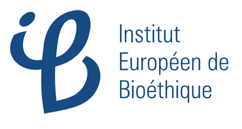
61 membres de l'Assemblée parlementaire du Conseil de l'Europe émanant de plusieurs pays et partis politiques, dont les socialistes, ont signé une “déclaration écrite” relative au projet de loi qui dépénaliserait l'euthanasie des enfants en Belgique.
Les signataires affirment que la Belgique se trompe lourdement en pensant « que les enfants sont capables de donner leur consentement éclairé à l'euthanasie et qu'ils peuvent comprendre la signification grave et les conséquences d'une telle décision ». Ces parlementaires estiment que la Belgique « trahit les enfants les plus vulnérables en estimant que leurs vies n'auraient plus de valeur intrinsèque ».
Une telle Déclaration n'engage pas toute l'Assemblée parlementaire. Elle constitue néanmoins un document officiel destiné à alerter un pays sur une situation grave en matière de droits de l'Homme ou d'éthique.
Written declaration No. 567
Considering the December 2013 vote in the Belgian Senate to approve by 50 votes to 17 a proposal to legalise euthanasia for children (without any age limit);
Bearing in mind that:
- the Committee of Ministers welcomed in this respect paragraph 9 (c) of the Parliamentary Assembly Recommendation 1418 (1999), to “encourage the member States of the Council of Europe to respect and protect the dignity of terminally ill or dying persons in all respects by upholding the prohibition against intentionally taking the life of terminally ill or dying persons”;
- the Assembly, in its Resolution 1859 (2012) stated that “Euthanasia, in the sense of the intentional killing by act or omission of a dependent human being for his or her alleged benefit, must always be prohibited”,
the undersigned members of the Parliamentary Assembly are of the opinion that this vote in the Belgian Senate:
- betrays some of the most vulnerable children in Belgium by accepting that their lives may no longer have any inherent value or worth and that they should die;
- mistakenly assumes that children are able to give appropriate informed consent to euthanasia and that they can understand the grave meaning and complex consequences associated with such a decision;
- promotes the unacceptable belief that a life can be unworthy of life which challenges the very basis of civilised society.
